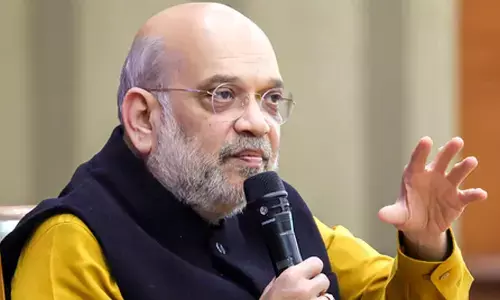Not entirely driven by noble intent

Whether it is the Nobel Prize for literature or the local Rotary Club’s recognition of local distinction, all awards are governed by subjective preferences. Indeed, the honours lists often tell us more about the preferences and priorities of the award- givers than the achievements of the award winners.
Whether it is the Nobel Prize for literature or the local Rotary Club’s recognition of local distinction, all awards are governed by subjective preferences. Indeed, the honours lists often tell us more about the preferences and priorities of the award- givers than the achievements of the award winners.
The Nobel Peace Prize, awarded by a committee of Norwegian politicians, is no exception. Like the now- extinct Lenin Peace Prize or even our own Indira Gandhi Prize for Peace and whatnot, its choice is out- and-out political and reflects the world as seen through the eyes of a Scandinavian country that now sees itself as a moral force for the good.

President Barack Obama won the Nobel Peace Prize in the first year of his presidency, even before he had time to leave any mark on global affairs. The reason lay not in any tangible achievement, but to the unspoken celebration of the first black man to occupy the White House. Mahatma Gandhi didn’t win any Peace Prize because Scandinavian opinion of the times regarded him as a subversive crank. But times have changed and Norwegians assess their own relevance these days in a different way. I am sure that they may even have awarded the Nobel Peace Prize jointly to a Sri Lankan President and the LTTE supremo Velupillai Pirabhakaran, had Colombo been foolish enough to concede Eelam as the price of peace. Certainly, the Norwegian mediators tried very hard to push for a line of least resistance.
To point a finger at the implicit political dimension of the Nobel award that was announced last Friday afternoon, doesn’t amount to belittling the contribution of either our very own Kailash Satyarthi or the Pakistan- born, Birmingham- based Malala ousufzai.
The choice of the Norwegian panel was dictated by other considerations, not all of which are flattering to India. For a start, there was the spurious equivalence drawn between Satyarthi and Malala by individuals for whom the ‘ Third World’ is one, big amorphous mass. “ It is an important point”, declaimed the Nobel Committee, “ for a Hindu and a Muslim, an Indian and a Pakistani, to join in a common struggle…” Yes, Satyarthi is a Hindu and Malala is a Muslim. But pray what has Satyarthi’s religion got to do with his crusade to restore the delights of childhood to those who have been prematurely exposed to the darker side of the market economy? Maybe there is an anti-theological underpinning to Malala’s feisty opposition to bigotry. To club the two, however, seems woefully contrived, unless it was the Nobel Committee’s desire to expose the inherent barbarism of those outside the pale of Judaeo-Christian civilisation. For the more calculating West— and I am not suggesting that the Norwegian Parliament is part of it— India occupies a grey zone. In particular, India’s cheap labour costs are an unending source of concern to a West that has lost its manufacturing edge. One way out for the West is to adjust life styles and standards of living to more realistic levels. But since that is politically unacceptable, the temptation to create non- tariff barriers for products emanating in countries such as India has proved irresistible.
For Western activists, however, the child labour issue is a useful handle to tar the Made in India label. The idea is to either black out Indian goods on grounds of unethical practices such as environmental degradation and dodgy labour practices or, at least, to raise the cost of production by adding to the levels of certification.
It is unduly simplistic to believe that there is a specific anti- Indian agenda. India has become an object of wariness partly because it has all the potential (and often shows the signs) of emerging as another variant of China.
Bringing it down a notch or two by symbolically appropriating one man’s selfless agenda is clever politics. What Indians are celebrating as global recognition may well turn out to be a booster dose of Western condescension.








